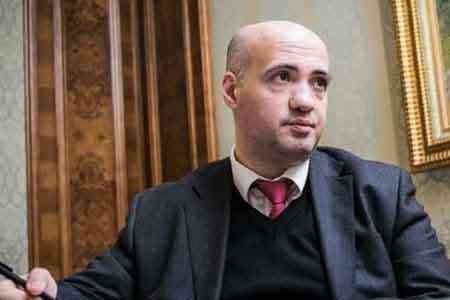


ArmInfo. Regarding the situation around Lydian Armnia, the government of Armenia must take its decision. This was stated by Dmitri Gvindadze, Head of the Armenian office of the European Bank for Reconstruction and Development (EBRD) at a press conference on January 30.
''So much has been said about the company that I don't know what to add. EBRD in this program has a small share. Before we take part in a particular project, we approach with all severity, presenting the most stringent requirements, including environmental, social ones, "Gvindadze said.
As the head of the Armenian office of EBRD noted, the company in whose capital the bank participates must meet all the requirements of the Bank, and the program itself must comply with the specified criteria for the Bank to agree to participate. "This applies to all our projects," he emphasized.
To recall, Lydian Armenia is a subsidiary of the British offshore Lydian International. The total cost of the Amulsar project is $ 370 million. The field's life was envisaged at 10 years and 4 months, with an average of 200 thousand ounces of gold planned to be mined annually.
Amulsar field is the second largest reserve in Armenia. According to the company, the deposit contains about 73733 kg of gold with an average grade of 0.78 g per ton, as well as 294.367 tons of silver with an average grade of 9.29 g per ton. It is located in the south-east of the country, 13 km from the spa town of Jermuk, between the rivers Arpa and Vorotan.
It should be noted that despite the assurances of the Lydian company that about $ 300 million has already been invested in the development project of the Amulsar gold deposit, environmentalists do not share the government's enthusiasm about the attractiveness of the mine exploitation plan. Environmentalists fear that the exploitation of the field, during which sodium cyanide will be used, may lead to the oxidation of water in rivers. Contaminated waters will become unsuitable for drinking and irrigation and may cause irreparable harm to the mineral springs of Jermuk and the ecosystem of Sevan.
Since the end of 2018, the road to the field has been blocked by environmental activists. The company in December last year announced that it was starting the delisting of its shares on the Toronto Stock Exchange, where they were quoted, and in fact announced a default.